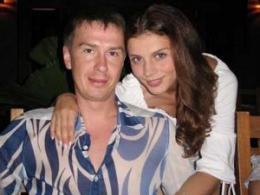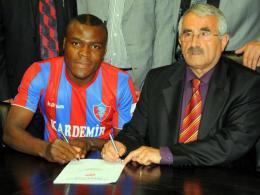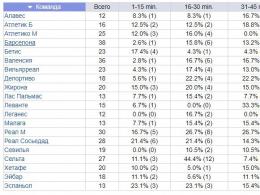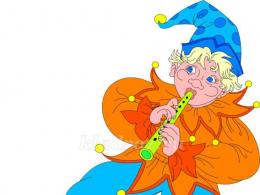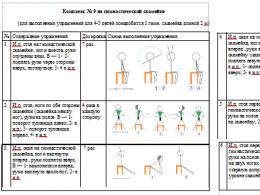What is the best drink during a workout at the gym? What to drink during a workout: water vs isotonics
The right drinks for active people involved in sports can become assistants in achieving sports results and achieving goals.
What is the best drink before a workout?
Freshly squeezed juices before your workout can give you the extra nutrients you need to maintain strength and endurance. Fresh fruit and vegetable juices contain the same beneficial vitamins, minerals, and plant chemicals that you get from eating whole fruits or vegetables. Your body can absorb these nutrients more easily in the form of fresh juice, and your digestive system may not have to digest them as hard. Fresh juices can help:
- reduce the risk of developing cancer;
- increase immunity;
- help in detoxification;
- improve digestion;
- and increase weight loss.
Fruit or vegetable juices that contain both complex and simple carbohydrates may provide you with the best energy fuel for the body. Complex carbohydrates provide you with fructose, which your body slowly converts into energy, which will give you more energy for training. Carbohydrates take about two hours to process, making fresh juice a quick and easy source of energy for your workout.
carrot juice
Carrot juice can give you energy for your workout, contains high levels of beta-carotene - antioxidant, which oxidizes the blood, brain and body tissues.
Fruit and nut juice
Banana– a good option for juicing as it contains high levels of potassium, which can help your body convert glucose into glycogen for sustainable energy.
Almond It is a nutrient-dense, high-energy food, and bran contains magnesium, which can help your body store and use glycogen, as well as maintain healthy blood sugar levels.
Mix:
- 1 glass of freshly squeezed apple juice
- 1 banana;
- 1 st. from wheat, rice or oat bran;
- and 8 to 12 pieces of almonds.
Mix thoroughly, adding water for desired taste and consistency.
beet juice
Freshly Squeezed Beetroot Juice Before Workout Can Help improve endurance. The nitrates in beetroot juice lead to a decrease in oxygen uptake, making exercise less tiring.
Before your next workout, drink the juice of 1 beetroot, adding fresh apple juice to taste.
The sugar in fruits and vegetables can help increase your workout performance, but it's only necessary for those who are gaining muscle mass.
Losers need to be careful, juices should be consumed in the morning, exclusively from fruits with a low glycemic index, such as a green apple. Any simple carbohydrates inhibit fat burning. Also, another tonic drink, with a slight energy effect, will be coffee, for those who loses weight without sugar. But keep in mind, coffee expels water from the body, so make sure to replenish the lost fluid.
What is the best drink during a workout?

The best and only drink during a workout will be without additives and impurities. The main purpose of drinks during training is to prevent dehydration and blood clotting, for this it is better to drink water, since you already received energy for training before the start of training. This energy you have to spend during the workout, not add new carbohydrates, so drink plenty of water- absolutely everyone needs it!
What is the best drink after a workout?
Right after your workout, you'll need enough protein to maintain your muscles and overall body health. Within 30 minutes after training you will not hurt to drink a glass of milk, in which you can add cottage cheese or fruit (for those who gain muscle), mix in a blender, it will turn out, a kind of natural . You can also use, which will replenish energy and prevent muscle breakdown.
For those who dry, simple carbohydrates, and even milk sugar (lactose) can interfere with the drying process, as it will provide a jump in insulin, and the weight will remain in place. You need water just like you do when you exercise, and food is an important source of nutrients for you.
Conclusion: what to drink after training for muscle growth
Natural products - milk, fruit and vegetable juices - are a source of energy and nutrients. Each has its own absorption rate and nutritional value. Of course, if you gain muscle, you need to consume a large amount of proteins, fats and carbohydrates. To replenish these reserves, a simple and effective way will be to take sports cocktails -, a gainer, (replaceable and irreplaceable), pre-workout complexes. For those who are losing weight, will help the reception before training, to release fat into energy. These are optional, but quite effective helpers in accelerating results.
Useful video: pre-workout drink recipe
Can you drink while eating? This question has probably been asked by many. Let's try to figure it out.
Important processes to be aware of
Our body performs a number of processes during eating and digestion. Therefore, in order to decide whether to drink water during a meal, it is important to understand and consider each of them.
- The mouth produces a lot of saliva when eating, as it contains digestive enzymes that help break down food. They are very important in the formation of a healthy digestive process.
- Our stomachs contain gastric juice that aids in digestion and kills bacteria that can be ingested with food. It is important for this juice to function properly as it aids in the breakdown of food and allows the stomach to contract and "pulverize" the food to a point that allows it to move through the small intestine.
- Nutrients from the foods we eat are transferred through the bloodstream to the liver, from where they are distributed to different parts of the body. The liver requires enough water to function and do its job properly.
To drink or not to drink?
The answers to this question are ambiguous. There are different opinions on this matter. The main focus of the discussion is the question: "Is drinking water during a meal good or bad for the digestive process?". There is no doubt that drinking too much water with meals can interfere with the natural and necessary levels of bile and stomach acid. This will slow down the digestion process and reduce the body's ability to produce enough digestive enzymes to digest food properly. Without proper digestion, toxic waste buildup can occur no matter what you eat. The same applies to other drinks that we could consume during our meal. Alcoholic and sugary sodas "dry out" saliva, making it even more difficult to digest food properly. Cold drinking water or other beverages slow down digestion and can create cramps in some people.

It's no secret that drinking water before and after a meal improves the digestion process. The general consensus is that by drinking water about half an hour before a meal, we protect our body from dehydration, which promotes optimal digestion. For the liver, this is no less important, and, therefore, we help its optimal work. Drinking water thirty minutes after a meal can also help keep the body hydrated and replenish fluids lost during digestion. It is important to note that in case of dehydration, it is better to drink water with meals than not to drink, since in this case it can be very difficult for the body to digest food.
The Other Side of the Medal
It's also important to note that, according to Dr. Michael Picco of the Mayo Clinic, there is absolutely no concern that water will dilute digestive juices or interfere with digestion. In fact, during or after a meal, it aids in digestion. Water and other fluids help break down food, allowing the body to absorb nutrients. Water also softens the stool, and this, in turn, helps prevent problems such as constipation. So far, the clinic staff makes no mention of the temperature or amount of water, but apparently they are confident that drinking with meals is usually good.

Based on the information provided, we can apply a few tips. It seems most important to stay hydrated throughout the day. And if you must drink with meals, don't drink too much, and avoid alcohol and acidic drinks. Drink warm water in moderation. A small glass will most likely not interfere with digestion, and by adding a little lemon, you can help with this process. If possible, try drinking half an hour before and half an hour after meals, and do not drink during meals. Watch how you feel. And if it works positively for you, then stick to that pattern, and if not, adjust accordingly.

Listen to your body. Sometimes what he feels and wants is more important than rigidly following the rules.
The title turned out to be a bit ambiguous, so I’ll clarify right away: we are not talking about intoxicating libations, but about drinking water.
First of all, let's recall a few facts from anatomy about the structure of the stomach.
The first fact indicates that the stomach is served by two valves - at the inlet and outlet. The top valve (at the inlet) constantly allows food (and water) from the esophagus to the stomach, but must never release it back into the esophagus. If the upper valve is out of order and leaks food or gastric juice back into the esophagus, heartburn and other digestive disorders occur.
The lower valve - at the outlet of the stomach - is also designed to pass digested food only in one direction - from the stomach to the intestines. Unlike the top valve, the bottom valve does not let food through immediately, but closes for several hours when food enters the stomach - and opens when digestion is completed. Thanks to this, the process is maintained - the food is in the stomach for the required time and then, already in a digested form, it follows further along the intestines.
In other words, everything that you ate and drank quickly "falls" into the stomach, but food and drink do not pass from the stomach further into the intestines immediately, but only "by permission" of the stomach, when it "decides" that everything has been digested enough.
The second fact is that for the production and excretion of gastric juice, the body, of course, requires water.
The third fact suggests that water is poorly absorbed by the walls of the stomach, but is perfectly absorbed by the intestines.
Let's try to simulate the behavior of the stomach in different situations.
Drink water BEFORE eating
It is important to understand here that BEFORE eating in this case means "on an empty stomach" (the lower valve of the stomach is open). If you ate meat half an hour ago, and now you decide to eat pasta as well, and before that you drink water, then this is not BEFORE eating, but AFTER (the lower stomach valve is closed, the digestion process is going on).
So, the top valve allows water into the empty stomach without delay. The bottom valve, again without delay, passes water into the intestines, since the water does not require digestion. Water in the right amount is absorbed by the intestines, the excess is very quickly excreted by the kidneys (it is easy and quick to verify this if you drink more water). The result - the body is saturated with water, including ready for the release of gastric juice. And the kidneys, removing excess water, got rid of the accumulated toxic substances.
This whole process takes 15-20 minutes, which is why it is recommended to drink water about 20 minutes before eating.
Drink water AFTER eating
The situation is different, since the bottom valve is closed, and food (including water) will proceed further only after a few hours. Nevertheless, the upper valve lets water into the stomach (remember that it is constantly open), but water no longer passes from the stomach to the intestines. As a result, water first fills and inflates the stomach. If you continue to drink, the water fills the entire esophagus and comes "under the very neck." Have you ever had such an experience when water gurgles in your throat? You can't drink anymore physically.
If you drink moderately, the effect will be limited to a bloated, heavy stomach and diluted gastric juice. Diluted gastric juice means that its concentration may not be enough for high-quality digestion of food, and a "half-raw" product will enter the intestines, causing gas, constipation and other digestive disorders.
It is important to understand that the actual process of digestion differs from the above scheme, since the stomach is not a cooking pot, the contents of which can be easily diluted with water. Depending on what is eaten, some of the water can sometimes even pass through the "closed" valve of the stomach, and sometimes not. Therefore, do not torture yourself with thirst, and drink if the body asks for fluids after eating. But be sure to distinguish real thirst from the psychological habit of drinking "on the machine" after eating.
Drink water while eating
The situation is not fundamentally different from drinking after eating, since the bottom valve is closed. If the valve does not have time to close, or is not in order, then water can seep into the intestines, entraining particles of undigested food and causing the same disorders.
If you want to drink during and after meals
The human body is a very wise system, and if you listen to it carefully, you can add a lot of health and pleasant emotions. The process of digestion is not fully understood, and actual digestion may differ from the models presented. Especially personally your organism - in general is deeply individual.
So trust your body. If you want to drink while eating - drink. If you are thirsty after eating, quench it. But moderately. classical a cup of hot tea fit just right.
Keep in mind that when drinking while eating, there is a risk of swallowing poorly chewed food, see below about dry food.
And it is definitely worth refraining from drinking ice water and drinks with ice during and after meals. On the Internet, there are many references to the doctoral dissertation of Professor Lindenbraten V.D. (Unfortunately, the thesis itself could not be found).
In the practice of Soviet radiologists (Prof. V.D. Lindenbraten, 1969) there was such a case. It was necessary to achieve the retention of barium porridge in the stomach for the time necessary for x-ray examination. But it turned out that if porridge is given without preheating (immediately from the refrigerator), then it leaves the stomach faster than the radiologists had time to adjust their then (1969) - not so perfect - equipment.Radiologists became interested in this fact, conducted experiments and found out that if you drink food with cold drinks, then the time the food stays in the stomach is reduced from 4-5 hours to 20 minutes (for more details, see Lindenbraten Vitaly Davidovich's doctoral dissertation “Materials on the question of the effect on the body heat”, 1969 Institute of Experimental Medicine of the USSR Academy of Medical Sciences, Leningrad). This is, firstly, a direct path to obesity, since it is impossible to get enough of such food and the feeling of hunger comes very quickly. Secondly, this is how putrefactive processes begin in the intestines, because there was no normal digestion, as such.
By the way, this is the way in which McDonald's made a lot of money for itself! Washing down food (sandwiches, hamburgers, hot dogs) with ice drinks, a person will never be able to eat fast food, which means that he will come to have a bite again and again. At the same time, a rather high price is set for hot drinks - tea, coffee - and they are not included in complex sets, but ice-cold Coca-Cola is relatively cheap. From the above, we can conclude: to avoid digestive problems, never drink cold drinks with food!
The conclusion is clear
Draw the obvious conclusion yourself :).
The most fertile time to saturate the body with water is on an empty stomach in the morning. I drink a few glasses intermittently (before a shower, after a shower, before leaving the house, etc.). Similar recommendations are given by doctors and nutritionists.
Going to work without breakfast(oh, horror!), or . At work, I continue to drink water little by little, but I don’t feel like eating until lunch. This is normal - my work is sedentary, does not require increased calories.
But what about the soup?
Indeed, the soup is already diluted with water, which means that digestion follows the "drink with meals" scenario. At the same time, soups are traditionally considered very beneficial for digestion. Was the wise grandmother wrong?
The wise grandmother, as always, was right. Not only did she say "eat soup," she added "don't eat dry food."
What is a dryer
The human stomach is designed for sufficiently "wet" food. containing, as you know, 80-90 percent or more of water. If your food is more "dry" - bread, something fried, dry convenience food, etc. - Drying starts.
To digest "dry" food, the stomach needs additional water. And he will definitely ask her, and then he will try to evenly mix the sandwich with the drunk soda. For high-quality moistening of all the pieces, the sandwich should be soaked in a drink well in advance of the meal, but the food will turn out, to put it mildly, unappetizing.
But the soup not only contains additional water, but all its components are already boiled, saturated with water as much as possible in advance. And the "extra" broth is not superfluous at all - it compensates for the lack of water in the second dish. Grandma will certainly offer a classic three-course dinner :)
However, even dry food has a positive side. To swallow a sandwich without drinking it, you want to chew it very carefully, and when drinking it, there is a risk of hastily swallowing large pieces, which is not at all favorable for the stomach and digestion in general.
In the dry matter
Drinking water before meals is the most beneficial and harmless. With excessive drinking, you "risk" only to additionally rinse the kidneys (if, and the kidneys are healthy, of course).
Drinking with meals is purely individual, listening to the body. Depending on whether you are now eating a ripe watermelon or a cracker with a bite of stale cheese. Avoid eating dry foods and chew your food thoroughly.
Drink after meals - only when thirsty, avoiding icy drinks. With an excess of drinking, you risk getting diluted gastric juice and poorly digested food in the intestines.
Comments (2)
Add new comment
Don't go to extremes
I will say here and I will constantly repeat "extremes are often fatal." Don't believe? Then what would you prefer - freeze to death or burn? That's right - it's better to stick to the "golden mean".
Do not change habits headlong, because nature itself does not tolerate sudden jumps: either a smooth evolution, or a non-viable mutant. Act gradually and carefully.
The result of the keys of life is so pleasing that you want to increase the impact more and more. But keep yourself in control, you are working with very powerful energies, the dosage of which should be increased carefully. Be reasonable.
And keep in mind: I am not a doctor, and even more so I do not know the characteristics of your body. Therefore, carefully study the reviewed materials, take into account the individual characteristics of your body, possible contraindications, be sure to consult with a specialist. Responsibility for the application of any methods and advice is yours alone. As Hippocrates said: "Do no harm!"
The methods are presented in a brief introductory version. Detailed materials should be obtained from the authors of the methods or their representatives.
Two of the most popular quiz game projects announced their merger into a single gaming space.
Nobel laureates at the gene level proved the benefits and necessity of a good night's sleep.
"Kurzweil R., Grossman T. TRANSCEND. A step-by-step guide to immortality". Book Review
Of course, we could not miss a book with such a tempting promise.
"Aerobics". System overview
Aerobics is the most effective technique for burning fat in real time. However, do you know what kind of time bomb for your figure contains regular aerobics?
"Recipes for health and longevity from Leanne Campbell." Book Review
Vegetarian cuisine can be quite varied, in theory. In practice, many come to a few proven daily recipes. Insidious routine and boredom imperceptibly approach, and now the body publicly demands something of the kind ...
Often athletes are concerned about whether it is possible to drink this or that liquid during training. This is due to the fact that everyone wants to endlessly improve their results and is trying to find a "liquid assistant" that would contribute to effective sports.
Some people choose not to drink any liquid at all during workouts. Of course, this is everyone's business, and it all depends on the intensity of the load and the duration of one session. But professionals agree on one thing: in order to achieve a greater result, it is necessary to supply fluid to the body, at least so that there is no dehydration.
And in such matters there are many myths and misconceptions that will be dispelled in this article.
Let's get acquainted with the most popular options for what beginners think can be used as fuel for the body in their workouts.
Protein
Many people wonder if it is possible to drink protein during a workout. It is worth immediately giving an unequivocal answer: no. Indeed, in this case, its intake becomes meaningless and even harmful, since such an additional portion of protein will not help to become stronger or better.
Protein is the most important component of our body, which it needs to build muscle tissue. But this does not mean that it should always be used. There is a certain time for taking the next portion of proteins, which is verified by scientific research.
Is it possible to drink protein during a workout, athletes have been interested since the time the first copies of this sports nutrition appeared. But the fact remains: it is best to use it after a workout for a speedy recovery and before going to bed to give the body the necessary building material.
But it should not be consumed immediately after you left the gym. At this time, everything that enters the body will be broken down to restore energy reserves, and certainly not suitable for building muscles. Therefore, it is better to drink a protein shake 30 minutes after a meal that followed a workout.
Tea
Next, consider whether you can drink tea during a workout. Answer: yes, of course. During exercise, a lot of fluid comes out of the body in the form of sweat. And the more intense this process, the faster you lose water reserves.

Tea is an excellent remedy for restoring fluid balance. After all, if you do not drink tea or water, you will endanger yourself. When a large loss of fluid occurs, the body faces the following problems:
- deterioration in the performance of the joints;
- blood viscosity;
- violation of the course of metabolic processes.
As fluid drains from the joints, they become flabby and are more susceptible to damage from normal stress. Because of the viscosity, blood begins to circulate more slowly through the body, forcing the heart to work harder. It affects all metabolic processes in the body.
Relief from dehydration
All this threatens with dehydration, poor health, dizziness. By drinking tea as an additional source of fluid, you help the body cope with the loss of water from the body.
But it should not be the usual tea with sugar that you drink in the morning or during dinner. Sugar is strictly forbidden to add to this drink if you use it during a workout.
Black or green doesn't matter. But usually everyone prefers the second one, as it helps to remove harmful substances from the body.

Amino acids
In order to understand whether it is possible to drink amino acids during a workout, let's figure out what they are. It's just a broken down protein. That is, unlike protein, your body does not need to digest it for so long to absorb it.
There are different opinions expressed by different coaches and athletes about the intake of amino acids in training. Some say that this is pointless, since they will be converted into glucose and used by the body for energy, others recommend drinking portions of “aminoks” during body drying exercises.
The chemical processes that occur inside the body indicate that when protein enters the body during a period of energy starvation, it will be used to replenish energy reserves. That is, in fact, amino acids will not help to increase muscle mass or meet the need for protein.

"Aminki" turn into glucose - too much to pay for kilojoules
In this regard, given the high cost of pure amino acids, you need to think about whether it is worth doing this if you can consume carbohydrates that are much cheaper and will be used by the body with greater efficiency and for their intended purpose?
Therefore, often the statements of athletes about the need to take amino acids during exercise are simply referred to as an advertisement for any sports nutrition.
The same answer should be given to a similar question about whether it is possible to drink BCAA during a workout. After all, they are just a set of essential amino acids. From them, the body can synthesize the rest of the varieties of “aminoks” that it needs at one time or another.
Of course, they will not harm you, but they will be used by the body for other than its intended purpose.
Gainer
The question of whether you can drink a gainer during a workout is a concern for many people with a lean physique who want to “grow up” faster. Out of ignorance, novice athletes begin to make themselves cocktails from a gainer to help, as they think, the body cope with the stress that it receives during exercise.
This is a mistake. Yes, on the one hand, the gainer contains carbohydrates that are needed to get the energy that is so necessary during training. But besides this, it contains many other additives.

It is enough just to read the composition of the powder mixture, which is called a gainer, to see the variety of vitamins, minerals and other nutrients that are present there. This is not to mention the protein, which is an indispensable unit of any gainer.
Digestive processes interfere with normal exercise
Can I drink a "bomb" of various nutrients during a workout? Definitely not. The body will spend its strength on the assimilation of such a cocktail, and not on the exercise. Gainers load the stomach quite hard, which during training should not be stuffed with food or similar additives.
This will interfere with the workout quite a lot. It is better to drink a gainer immediately after class, which will help the body recover faster and recover after a grueling workout.
Milk
The usefulness of milk is hard to dispute. It is rich in proteins, carbohydrates, fats, vitamins, trace elements. You can even remember the nursery rhymes that say: "Drink milk, children - you will be healthy."
Yes indeed, this product is very useful. Unfortunately, not all adults can consume it due to the inability of the body to process lactose.
Despite the usefulness, the correct answer to the question of whether it is possible to drink milk during a workout is “No!”. It has to do with digestion.
Milk is a product that is not so easy for the body to digest.

In training, nothing should distract the athlete from performing exercises, especially while working with heavy weights. Due to the presence of food bacteria, milk can cause bloating and other similar problems.
It can cause feelings of nausea and discomfort and will not increase results, since most of the attention of the body will be focused on trying to digest and assimilate milk, and not on training.
It can be drunk in the morning, after a workout or at night. Reception before class can be done in 40-60 minutes. It is highly recommended not to take this product while playing sports.
What is the best way to help the body during training?
Of the options listed above, tea is ideal. But there are other options that are just as good.
If you are thinking about whether it is possible to drink water during a workout and cannot find the answer to your question, then you have come to the right place. This liquid is the best choice.

In addition to the fact that it does not contain any calories at all, it will restore the water balance and the body's needs for fluid as quickly as possible.
Adding various additives to it would also be ideal. For example, guarana, caffeine, or regular carbohydrate mixtures diluted with water will help you get extra energy, get rid of fatigue and be more fresh.
Abuse will not lead to good
Don't put too much pressure on the water. Excess fluid in the body will encourage frequent urination and heaviness in the abdomen. And if the training is active, then there may be discomfort in the stomach.
If you are wondering if you can drink during strength training, then let's say that all athletes agree in one opinion: it is worth drinking small amounts of fluid. If there is a lot of water in the joints, this can negatively affect their strength. In addition, at times of peak tension, a gag reflex is sometimes triggered, which threatens with unpleasant consequences.
But, of course, drinking water is necessary at least so that the body is not dehydrated. After all, in this state, you simply can not intensively engage in for the benefit of health.
Everyone knows the elementary truth that the human body mainly consists of water. Such a structure of our body forces us to maintain a water balance in it, preventing dehydration or, on the contrary, oversaturation with liquid. It would seem that we should start by finding out how often a person should drink and what he should drink. But there are a lot of suggestions for this. So many that it's easy to get confused.
To the question "how much liquid should I drink per day?" - the answer is simple: drink as much as you want. The body itself signals thirst that it needs to replenish the lost fluid.
It is human nature to sweat. According to scientists, even in a calm state, the human body releases up to 0.5 liters of moisture per day through sweating. Salts are removed from the body through sweat, and in hot weather this function prevents overheating. With moderate physical activity, already 1 liter of fluid is excreted from the body. If a person is actively engaged in physical education or sports, then during training, the release of sweat is disproportionately greater.
To get an idea of how much water you need to drink per day, there are special tables that indicate the amount of fluid needed depending on body weight. But they should not be considered as a strict guide to action, but only as a guide. So, with a weight of 60-70 kg, you should drink 2 liters of clean water. This does not include juices, coffee and tea. And with a weight of 100 kg, the rate of drinking water increases to 3 liters. This is the average daily water requirement for a person. Of course, no one will measure the water they drink. These tables rather serve as an illustration of the fact that our body simply needs water.
What water to drink
Even in the normal state, when a person does not exercise, he must definitely drink water. We will also answer one of the most popular questions: “what kind of water to drink - boiled or raw?” It is better if it is pure raw water.

Drinking water throughout the day
As for how to drink water during the day, there are also some recommendations. So, it is recommended to drink a glass of clean water immediately after waking up. This will not only provide the body with fluid, but will also help to better cleanse the intestines. Just this one step - a glass of water after waking up - can take your health to a whole new level. Simple, like all ingenious! But before going to bed, it is necessary to limit the amount of fluid consumed in order to reduce the load on the kidneys. During the day, be sure to drink when you feel the slightest sign of thirst. And try not to drink tea or coffee, namely pure water.
How and what to drink during training
Can you drink water while exercising? It is possible and necessary. If this is not done, then the effectiveness of training is halved, because the body does not replenish the fluid lost during sweating. Do not forget that muscles, like the whole body, contain a huge amount of fluid. What to drink during a workout? It is best to drink pure drinking water or mineral water. You can add a little natural honey to the liquid. Also, various isotonics are now being produced - drinks for athletes containing vitamins, amino acids and carbohydrates, which increase the effect of sports.
Listen to your body. It will tell you when to drink water during your workout. But you should not drink a lot immediately before training. If the stomach is full, you should wait half an hour and only then proceed with the exercises.
What is the best drink during a workout at the gym? With intensive training in the gym, you should always have a bottle of water with you and drink a little from it every 10-15 minutes. The exception to this rule is yoga. If you are engaged in this type of wellness practice, then you need to drink a glass of water 30 minutes before the start of classes. After completing the complex, you can drink no earlier than half an hour.
Is it possible to drink something other than water during a workout? Doing this is strongly discouraged. The exception is special drinks designed for athletes. They include pure water with the addition of vitamins and mineral salts.

Even during outdoor sports in winter, to drink a warm drink, just fill a thermos with water and honey. Approximate ratio - 3 tbsp. l. honey per 1 liter of water.
After workout
What to drink after a workout will depend on the sport you are involved in. Bodybuilders can recommend a variety of protein shakes that are great to replenish the spent energy. If the sport is not associated with extreme physical exertion, then drink water with honey. It will quench your thirst well and provide the body with useful substances.
It is also necessary to take into account that the body receives fluid not only from the inside, but also from the outside. Therefore, water procedures should never be neglected. Make it a rule to start your workout by taking a shower and finish in the same way, or by swimming in a pool or pond. Showering before and after training clears clogged pores and the body begins to breathe, which has a positive effect on your health.

